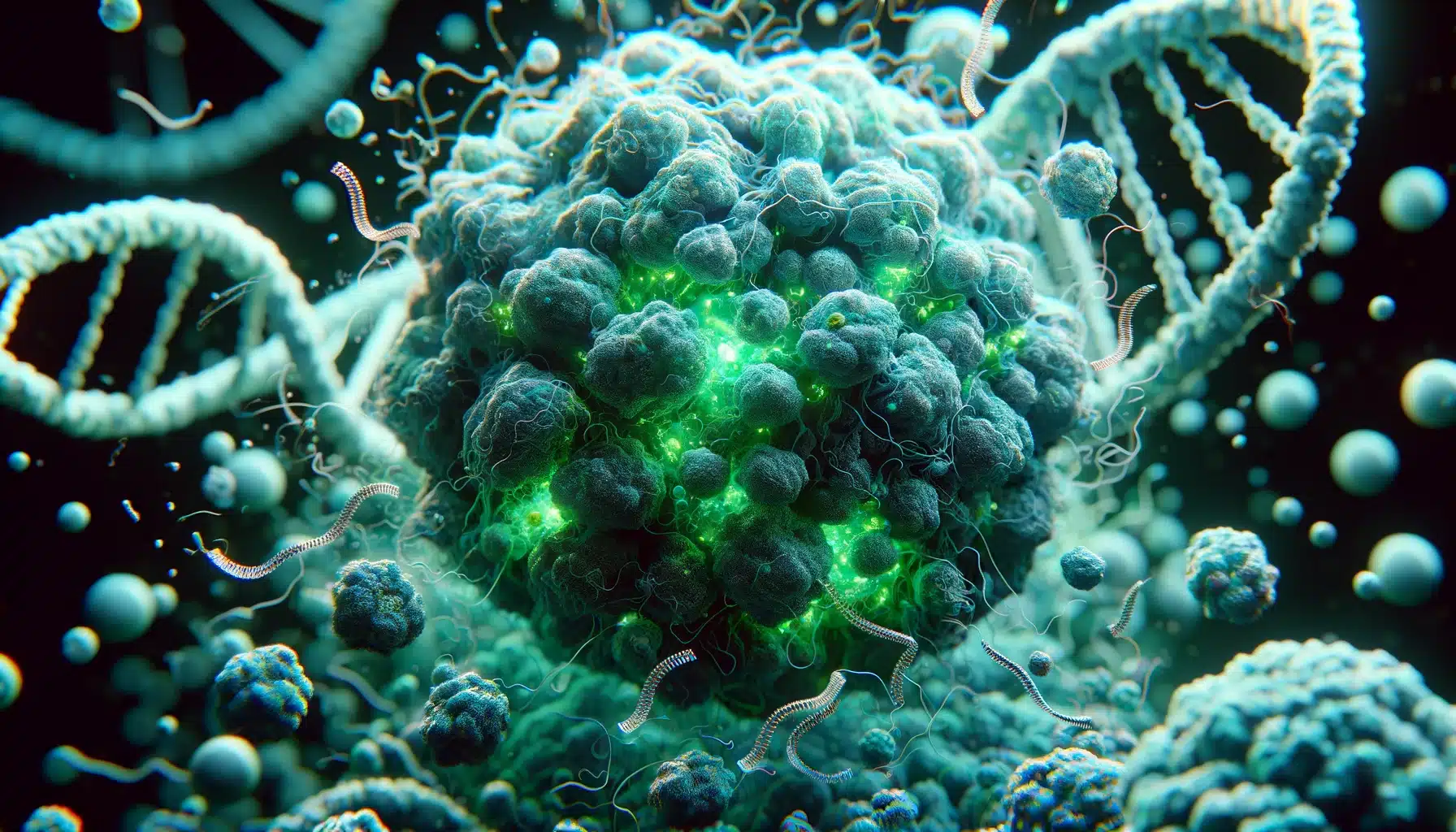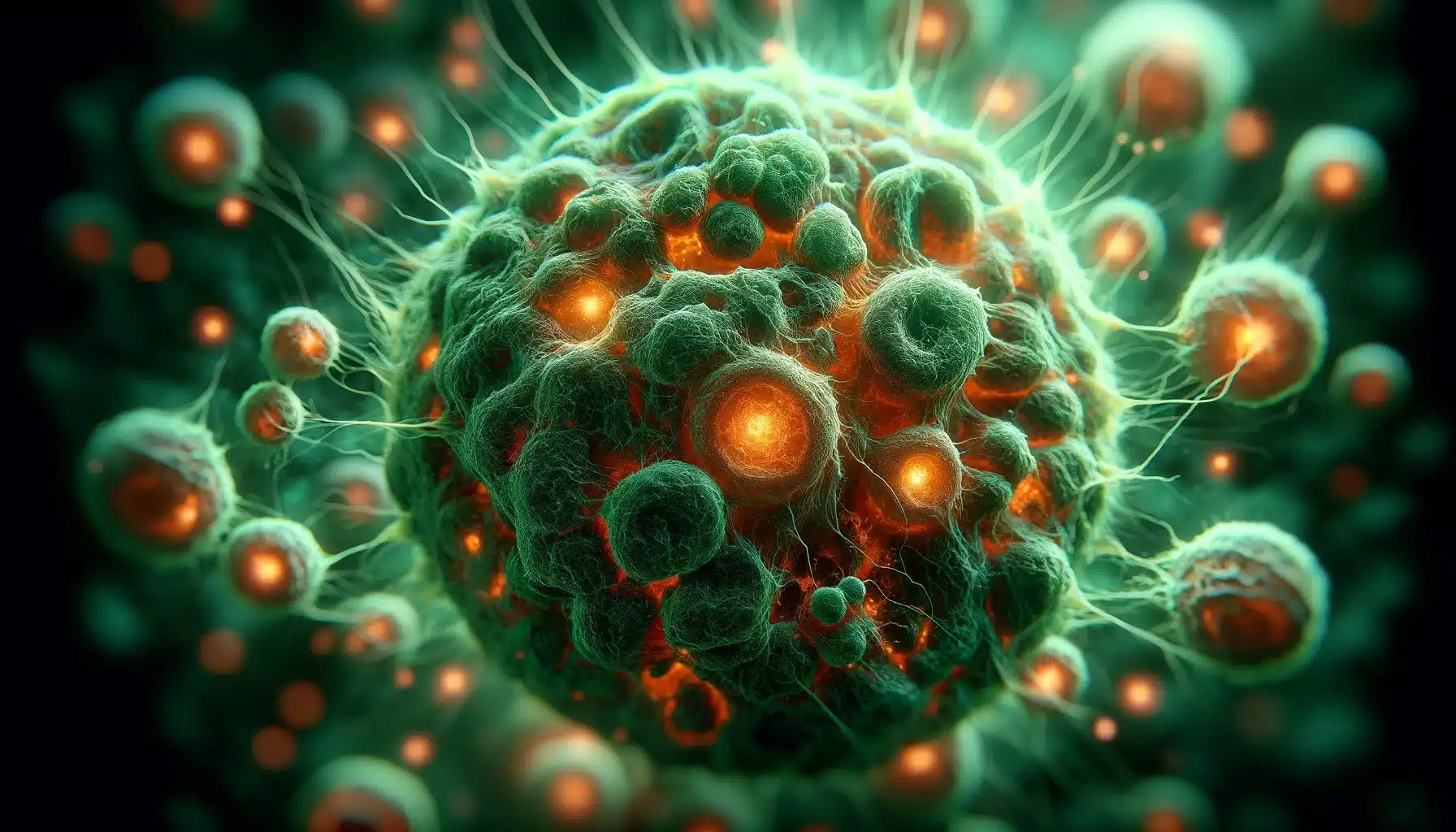Immunotherapy against solid tumours
Immunotherapies use the body’s immune system to fight a disease. If a person has cancer, immunotherapy helps the body’s defences recognise and attack cancer cells. This process is called ‘immune reaction‘. Cancer cells have certain structures on their surface that are less present or even non-existent on healthy cells. This is why the immune system recognises them. It is important that the immune system reacts neither too much nor too little. If the immune reaction were too weak, for example, not all tumour cells would be attacked. But even too strong an immune reaction could have negative consequences for the body. The cells of the immune system would then successfully destroy the dangerous cells, but at the same time also attack healthy tissue (autoimmune reaction). In order to avoid a disproportionate reaction, the immune system has ‘brakes’, so-called ‘checkpoints’ on the immune cells. Some solid tumours are particularly clever and manage to disguise themselves as healthy cells by binding to the checkpoints. Checkpoint inhibitors are medicines designed to neutralise this strategy of cancer cells. By blocking the connection point between malignant cells and checkpoints, they prevent this link from forming.
Immunotherapy, particularly the use of checkpoint inhibitors, has become an area of particular interest and significant development in the treatment of solid tumours. Regarding the mechanism of action, checkpoint inhibitors are a class of drugs that help the immune system to recognise and fight tumour cells. They act by targeting proteins such as PD-1, PD-L1 and CTLA-4, which are used by tumour cells to evade the immune system. These drugs have been shown to be particularly effective in treating several types of solid tumours, including melanoma, non-small cell lung cancer, kidney cancer, bladder cancer and head and neck cancers. Efficacy varies depending on the type and stage of the tumour, as well as the patient’s individual health profile.
Benefits:
- Improved survival rates: in many cases, checkpoint inhibitors have increased life expectancy, especially for cancers that were previously difficult to treat with traditional therapies such as chemotherapy.
- Targeted treatment: these therapies specifically target cancer cells, potentially reducing the side effects associated with treatments that target healthy cells.
Limitations and challenges for the technology
- Variability in response: not all patients respond to these treatments, and the reasons for this variability are still being researched.
- Side effects: although generally are less severe than chemotherapy, checkpoint inhibitors can cause immune-related side effects by activating the immune system against tissues in the body.
- High cost: these therapies are now often expensive, which may limit access for some patients.
- Research and development: ongoing research focuses on understanding why some cancers resist to these therapies, developing combination therapies (using checkpoint inhibitors with other treatments) and identifying biomarkers to predict which patients will benefit most.
The What’s Next
- Combination therapies: in the future, the combination of checkpoint inhibitors with other forms of cancer treatment, such as chemotherapy, radiation or other immunotherapies, could increase their effectiveness.
- Personalised medicine: there is growing interest in using the genetic and molecular profile of tumours to personalise checkpoint inhibitor therapy, ensuring that patients receive the most effective treatment for their specific cancer type.
- Expansion of indications: research is underway to extend the use of these therapies to other types of solid tumours and to use them in early stages of cancer.
- Regulatory environment: the US Food and Drug Administration (FDA) is actively approving new checkpoint inhibitors and is expanding indications for existing ones, reflecting rapid progress in this field.
- Global adoption and accessibility: although developed countries have seen significant adoption of these therapies, wider global access is needed, especially in low- and middle-income countries where the cost and availability of these drugs can be prohibitive.
- Patient awareness and education: it is crucial to increase patient awareness of the benefits and risks of immunotherapies. Educating patients can help them make informed decisions and manage expectations about treatment outcomes.
In summary, checkpoint inhibitors represent a promising and rapidly evolving area in the treatment of solid tumours. Although there are areas for improvement, such as variable patient responses and high costs, ongoing research and development is likely to increase their efficacy and availability in the coming years.




